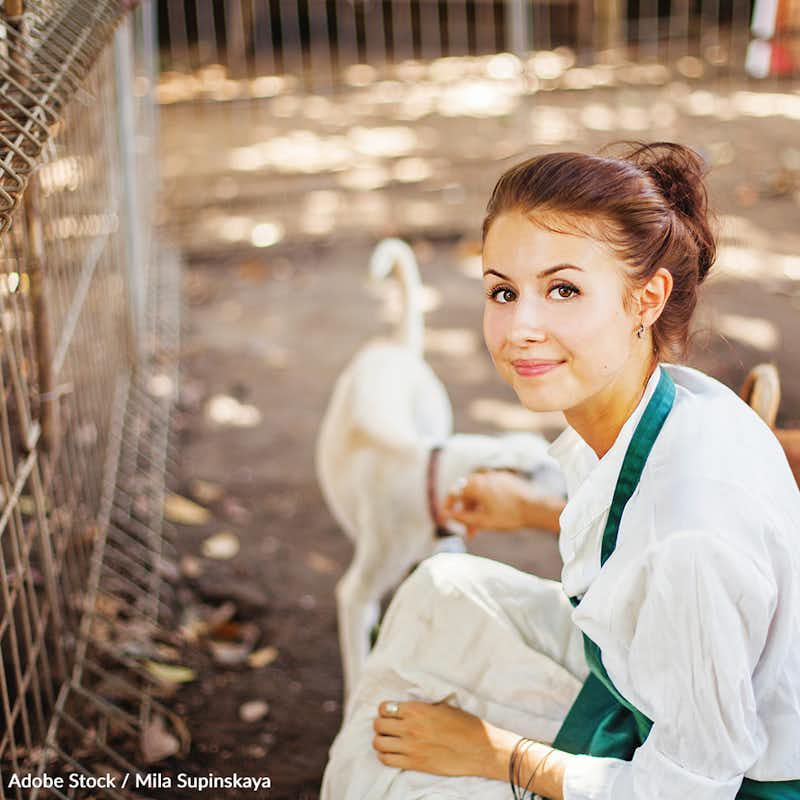Help Shelters Rebuild After Disaster
9,259 signatures toward our 30,000 Goal
Sponsor: The Animal Rescue Site
When a disaster strikes, animal shelters may be unable to continue operations because of the destruction. Take the pledge to support animal shelters when they need it most!

During a disaster, animals can’t ask for help.
When a disaster strikes, often times an animal shelter is unable to continue its operations because of the destruction done to its facilities1.
To make matters worse, during disasters intake for shelters generally increases dramatically due to all the local displaced pets2. Shelters receive calls on a daily basis from owners that can no longer afford to keep their animals, and people who are being displaced from their housing.
Many animal shelters are already in need of repair and support services for their animals, but do not have the operating budgets to implement needed changes3.
Disasters can include barn collapse, train derailment, drought, blizzard, explosion, or any situation that leaves animals vulnerable and without care4.
The animal care facility in your community is no doubt dedicated to caring for animals in and out of your shelter.
Take the Pledge To Help Shelters Rebuild After Disaster and ensure your community shelter can provide quality care when animals need it most!
- Tamekia Reece (1 August 2017), "What Happens to Pets When Natural Disaster Strikes."
- Federal Emergency Management Agency, "Animals in Disasters."
- Inside Edition (14 November 2022), "Many US Animal Shelters Filled to Capacity and Seeing Drop in Donations Amid Inflation."
- United States Department of Homeland Security (5 October 2022), "Natural Disasters."
The Pledge:
As an advocate for the importance of animal shelters, and the critical role they play in caring for homeless pets before, during and after disaster. I pledge to:
5. Learn where to find help when disaster strikes
Before a disaster strikes, organizations like American Humane, IFAW, and Greater Good Charities can provide forms, training materials, consultations and other forms of support to help animal shelters create a plan. These organizations can also can help provide volunteers and find supplies based on their availability and necessity.
4. Ask how to support my local shelter's emergency plan
Shelters need a plan for staff to follow, or risk losing the support of the community and donors should a disaster strike and animals die or suffer as a result of that lack of preparation.
Creating a plan and training shelter staff takes time, but it is critical to protecting the lives of animals and anyone else in your shelter.
If you are connected to your local shelter, you can help strengthen this plan by gathering any relief plans developed by the local Red Cross chapter, other animal care and control agencies, armed forces, Coast Guard, and police, fire, health, wildlife, and agriculture departments, so you know who to turn to for specific resources and do not duplicate their efforts.
You can also suggest spaces in the areas not likely to be affected by disaster where you can house stranded animals or those left in your care by owners. These spaces must allow for confinement, feeding, and watering of each animal, as well as cleaning and disinfecting of the cages, litter boxes, and bowls.
3. Become a National Field Response Responder
FEMA and ASPCA trained Daily Care Volunteers travel to the destination of an NFR operation to provide shelter set-up and daily animal care support to victims of cruelty or disaster. Tasks may include feeding, cleaning, behavioral enrichment and the safe humane handling and care of animals. Daily Care Volunteers are also responsible for monitoring the general health and behavior of the animals and reporting any issues to team leaders.
2. Prepare my own pet for emergency
It’s best to always remain prepared in case you need to evacuate with your pet during an emergency. The American Red Cross offers three tips to help pet parents keep their animals safe in case of disaster:
-
If it’s not safe for you to stay in your home during an emergency, it’s not safe for them either!
-
Include supplies for your pet in your emergency kit, or assemble an emergency kit for your pet.
-
Make an evacuation plan for you and your pets. Many hotels and shelters do not accept animal guests, other than service animals.
1. Support Greater Good Charities Rescue Rebuild
Greater Good Charities Rescue Rebuild's volunteers and professional advisors are making an impact when disaster strikes. Volunteers come together to build or refurbish the spaces animals spend the most time in: housing and exercise areas. They also repair buildings and fencing, and provide raised beds and toys for animals.
Rescue Rebuild was the first to respond to the city shelter located in Guthrie, OK, when a devastating tornado hit the town. Within 1 week they had the shelter back and running and ready to accept animals once again. Being prepared is essential in helping to get the shelters up and running as quick as possible!
By taking just one of these steps, I will be helping shelters across the nation provide quality care to animals before, during and after a disaster strikes.
Pledged by,
 Welcome Back! Log In to Continue
Welcome Back! Log In to Continue